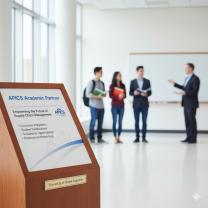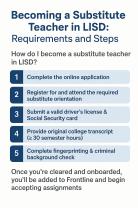What is the most important thing when teaching?
Identifying the single most important thing when teaching is challenging, as effective teaching involves a combination of various factors. However, many educators and experts would agree that creating a positive and inclusive learning environment is a fundamental and crucial aspect of teaching. Here are several key elements that contribute to the importance of creating a positive learning environment:
Relationships and Connection:
- Building positive relationships with students is paramount. A supportive teacher-student relationship fosters trust, respect, and a sense of belonging, which, in turn, enhances the learning experience.
Engagement and Motivation:
- A positive learning environment encourages student engagement and motivation. When students feel valued and supported, they are more likely to be motivated to participate actively in the learning process.
Safety and Well-Being:
- Physical and emotional safety is essential for effective learning. Creating a classroom environment where students feel safe to express themselves, take risks, and make mistakes promotes a positive and conducive atmosphere for learning.
Inclusivity and Diversity:
- Recognizing and embracing diversity is crucial. Inclusive teaching practices ensure that all students, regardless of their background, abilities, or learning styles, feel welcome and represented in the learning environment.
Clear Communication:
- Effective communication is foundational for teaching. Clear and open communication helps students understand expectations, learning objectives, and feedback, leading to a more successful learning experience.
Passion for Subject Matter:
- Teachers who convey passion and enthusiasm for the subject matter can inspire students to develop a genuine interest and curiosity. A teacher's passion can be contagious and contribute to a positive learning atmosphere.
Adaptability and Flexibility:
- Being adaptable to students' needs and adjusting teaching methods when necessary is crucial. Flexibility allows teachers to address diverse learning styles and respond to unexpected challenges that may arise during the learning process.
High Expectations:
- Setting and communicating high expectations for all students can empower them to strive for academic success. Establishing a culture of high expectations promotes a positive and challenging learning environment.
Feedback and Encouragement:
- Providing constructive feedback and encouragement helps students understand their progress and areas for improvement. Positive reinforcement fosters a growth mindset and enhances the learning experience.
Joy of Learning:
- Fostering a love for learning can make the educational experience enjoyable for students. Incorporating creativity, curiosity, and a sense of wonder into lessons can contribute to a positive and joyful learning environment.
While creating a positive learning environment is crucial, it's important to recognize that effective teaching involves a dynamic interplay of various elements. Different students may respond to different teaching approaches, and successful teaching often requires a combination of strategies tailored to individual and collective needs.
What qualities are crucial in effective teaching?
Effective teaching is a complex process that involves a variety of skills and qualities. Some of the most important qualities of effective teachers include:
- Strong subject matter knowledge: Teachers need to have a deep understanding of the subjects they teach in order to effectively explain concepts and answer student questions.
- Effective communication skills: Teachers need to be able to communicate complex concepts in a clear and concise way that is tailored to the level of understanding of their students.
- Strong pedagogical skills: Teachers need to be able to use a variety of teaching methods to engage students and help them learn effectively.
- Positive classroom management skills: Teachers need to be able to create a positive and supportive learning environment where students feel safe and respected.
- High expectations for student success: Teachers need to believe in their students' ability to learn and set high expectations for their academic achievement.
- Empathy and understanding: Teachers need to be able to understand and appreciate the perspectives of their students, and to respond to their individual needs.
- Passion for teaching: Effective teachers are passionate about their subject matter and about helping students learn.
How does empathy contribute to successful teaching?
Empathy is the ability to understand and share the feelings of another person. It is a crucial quality for effective teaching, as it allows teachers to build strong relationships with their students and create a supportive learning environment.
When teachers are empathetic, they are able to:
- Connect with students on a personal level: Empathy helps teachers to understand students' individual needs, motivations, and challenges. This allows them to tailor their teaching to the specific needs of each student and create a more effective learning experience.
- Build trust and rapport: Empathy helps teachers to build trust and rapport with their students. This trust is essential for creating a safe and supportive learning environment where students feel comfortable taking risks and expressing themselves.
- Respond to students' emotions: Empathy allows teachers to respond to students' emotions in a supportive and understanding way. This can help students to feel heard and validated, and it can also help them to regulate their emotions and focus on learning.
- Motivate students: Empathy can help teachers to motivate students by showing them that they care about their success. It can also help students to develop a sense of self-efficacy, which is the belief that they can succeed in their schoolwork.
What teaching methods foster better student engagement?
Effective teaching methods are those that actively engage students in the learning process. These methods encourage students to think critically, solve problems, and apply their knowledge to real-world situations.
Some of the most effective teaching methods include:
- Inquiry-based learning: Inquiry-based learning is a student-centered approach that encourages students to ask questions, explore ideas, and solve problems.
- Problem-based learning: Problem-based learning is a method of teaching that presents students with real-world problems to solve. This approach encourages students to think critically, work collaboratively, and apply their knowledge to real-world situations.
- Project-based learning: Project-based learning is a method of teaching that allows students to work on extended projects that are relevant to their interests and needs. This approach encourages students to take ownership of their learning and to develop a deeper understanding of the subject matter.
- Cooperative learning: Cooperative learning is a method of teaching that involves students working together in small groups to achieve common goals. This approach encourages students to learn from each other, develop communication skills, and work collaboratively.
By using a variety of effective teaching methods, teachers can create a more engaging and productive learning environment for their students. This can help students to achieve their full potential and develop the skills they need to succeed in college, career, and life.













